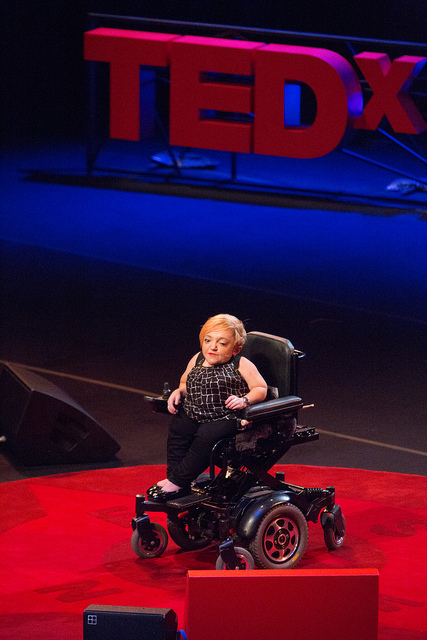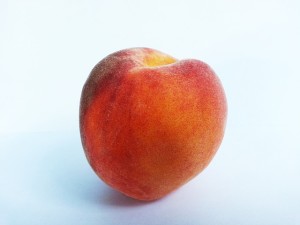
Confession time … I don’t like the word “inclusion”.
I don’t like the term “special” when it is used to separate people “special needs”.
I don’t even like “awareness weeks”.
Oh and I am not really fussed about “embrace difference” but I have used it today owing to a lack of imagination on my part!
I believe all of these terms can give people opportunity to reinforce difference, separation, exclusion from life.
These words can mean talk but not a lot of action. Talk without real change.
I discovered similar points, though much better put, when listening to an interview with Stella Young (link below) from ABC radio in Australia.
Why Talk About ‘Embrance Difference’?
My listening to the interview with Stella, happened at the time of a siege in Sydney, Australia. This also brought out the best (and worst) of the fear of difference. One of the best embodied in the #I’llridewithyou movement begun at this time by one young woman, standing alongside another young woman, who was afraid to wear her head scarf for fear of reprisals.
People often ask me how can they make a start to embrace differences. “I feel awkward – what do I do when I meet someone with a disability?” “What if I can’t understand the person?” “What if I make a mistake?”
I hope these pointers below are a helpful beginning. Please add more in the Comments below.
A new year, a new start maybe we can we really make a difference. Two of my blogging colleagues posted articles that were helpful this week. I have linked to them below AND taken it as a sign that this the year for making a difference.
Starting Points: Step Out and Embrace Difference

This is a starter kit towards being able to embrace differences – not the full working manual. Please share your pointers in the Comments below. And don’t be afraid to make a start – the full working manual really only comes when you make a start.
1) “Be bloody normal”
So simple – just be yourself. And if you are not sure what to do or say as you embrace differences – ask.
“ Be Bloody Normal” was Stella’s response when asked what people should do if they did not know how to be with a person who has a disability – (or is different to you).
Seems obvious but not always that easy. Fear of doing, or saying the wrong thing, a head full of “what if’s” can get in the way.
Stella gave examples of the subtle ways people treated her differently – tone of voice, loudness of speech. I remember a friend telling me he noticed that many people raised their voices (higher pitch) when talking to someone who was different. I noticed I did it – how about you?
2) Focus on identifying what a person’s need are rather than the label of what’s wrong, or different.
Labels – particularly medical labels – are not always useful. It is more useful to identify what a person’s needs are.
Stella described her needs as using a wheelchair and therefore needing access, and having bones that break easily. These are the needs that might require support. Asking “What’s wrong?” “What is the cause?” (for Stella ‘Osteogenesis Imperfecta’) does not always tell you a lot, and it can be invasive.
3) Questions that help understand and meet a people’s needs are useful. Questions to satisfy your curiosity are not.
Before asking a question ask yourself is it a “need to know – or a want to know” question. If the question is only to satisfy your curiosity – don’t ask.
When working with people with traumatic brain injury, and their families, it was common to hear of people upset when support workers ask outright for details about their accident. It did not alter the support a person needed, and retelling details of an accident was often traumatic .
This article by Cheryl Green published in Adios Barbie clearly explains the impact questions and unwanted curiosity can have. Dear World: How I Got My Brain Injury Is None of Your Business
4) Ask before helping. Being “well meaning” doesn’t make it right.
Most often people will ask you if they need help. If a person does not give permission – don’t assume it is OK to ‘help’. If you offer help and it is refused – accept that. If it is refused a little (or a lot) rudely – remember you may not be the first, just accept the refusal.
Don’t get upset if your actions or words, even if well-intentioned, are not received with good grace. Stella describes many occasions when help is given without being asked for, nor wanted. Sometimes even people frequently asking to help can interrupt life, and be annoying.
I was reminded of a young woman who walked awkwardly on two crutches, carefully balancing her shopping on both sides. People would “help” her without asking by taking the shopping, often result in her overbalancing.
5) Maintain high expectations (or at least normal expectations).
Graeme Innes who was Disability Discrimination Commissioner for Australia described the “soft bigotry of low expectations”. When the bar is set low it is difficult for people to achieve beyond those expectations.
Stella describes how her parents treated her no differently than they did her siblings; expectations were placed on her as they were on her sisters growing up. She went to her local school, graduated and left her hometown for a successful career.
6) Think before you speak.
We all say stupid things, regretful things. Try and imagine how your words might impact on the person receiving them – before you utter them.
7) Action is more important than lip service.
If we are really to embrace difference and enable community out-siders to become part of our community life we need more than just talk
and more than just the actions of a few.
Each of us can take action.
Stella described her view of “awareness weeks” as often patronising and superficial. Suggesting that working to remove the barriers to life so it did not have to be so hard, was a more effective approach. A great starting point.
More about including people. The second timely article that came along this week that linked to this article was Do You Include The Others on The Glass is Half Full by Wolf Wolfgang.
The full interview with Stella Young can be found in the link:
[ilink url=”http://www.abc.net.au/local/stories/2013/09/24/3855330.htm”]Interview with Stella Young[/ilink]
AND FINALLY
People need to be “part of the fabric of the community” – not ‘special’ (Stella describes ‘special’ as code for Sh.t !)and not on the outside of community life. Stella talked about suggesting inclusion may not be the best way forward describing a new way she and a friend had come up with:
“infiltration not inclusion”
Stella Young died in December 2014. While we might never have her flair and comedic streak when can all take up the advocacy she undertook and ensure difference is no longer a reason for people being out – siders in life.
